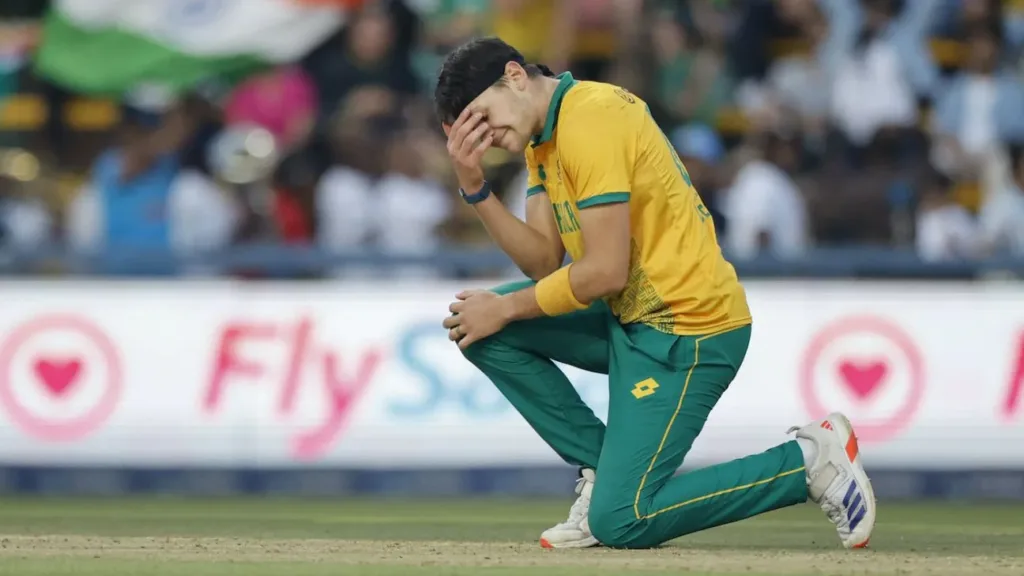Balancing Act: South Africa’s Coach Explains the Need to Grow the Talent Pool
South Africa’s white-ball coach Rob Walter acknowledged the team’s 3-1 defeat to India in the recent series, describing it as a “balancing act” between fielding the best XI and exposing younger players to top-level competition.
Expanding the Player Pool
Walter emphasized that to expand the player pool, there are times when the team has to feature inexperienced cricketers even against strong opponents.
“To grow the net of players, there’s times we have to play younger guys even in big series against good teams. And ultimately, that’s where they’re going to learn the most,” he said in Johannesburg after South Africa’s 135-run defeat in the fourth T20I.
The coach recognized that South Africa’s attack, which conceded over 200 runs three times in four matches, lacked the experience of key bowlers like Kagiso Rabada, Lungi Ngidi, Anrich Nortje, and Tabraiz Shamsi. In their absence, younger talents like Marco Jansen, Gerald Coetzee, Andile Simelane, Nqaba Peter, and Lutho Sipamla were provided opportunities.
Balancing Act and Performance
Walter stated that it’s a “balancing act” and there’s no “right or wrong” approach. He acknowledged the team’s need to get rest, rotation, and exposure right, while recognizing that it doesn’t excuse the team’s poor performance.
“It’s really a balancing act and there’s no right or wrong. We’re trying to get it right, we’re trying to get rest right, we’re trying to get rotation right, we’re trying to get exposure right all at the same time. But it doesn’t excuse the performance. We still need to be better and that starts with me as the head coach of the team,” Walter stated.
Bilateral Form vs. Tournament Success
Since taking over in February 2023, South Africa have not won any of the seven bilateral T20I series they have played, which the coach acknowledged is an “incredibly difficult” feat to accept. However, he pointed to the team’s recent success in the T20 World Cup, where they reached the final, as a testament to their ability to perform on the big stage.
Walter explained the discrepancy between their bilateral form and tournament success, stating that when they go to world tournaments, they can pick their “very best 15 players,” but they can’t do that every single time they play bilaterally due to the “too much cricket” schedule.
Retaining Players and Franchise Leagues
The coach recognized the challenge of retaining players in the face of lucrative franchise leagues, particularly with the South African Rand being the weakest among SENA countries. He acknowledged the decisions of Nortje and Shamsi to opt out of central contracts, while emphasizing the need to be “cognisant of what’s happening in world cricket” and the reality that “the money lies in franchise cricket, not international cricket.”
🔗 Source
